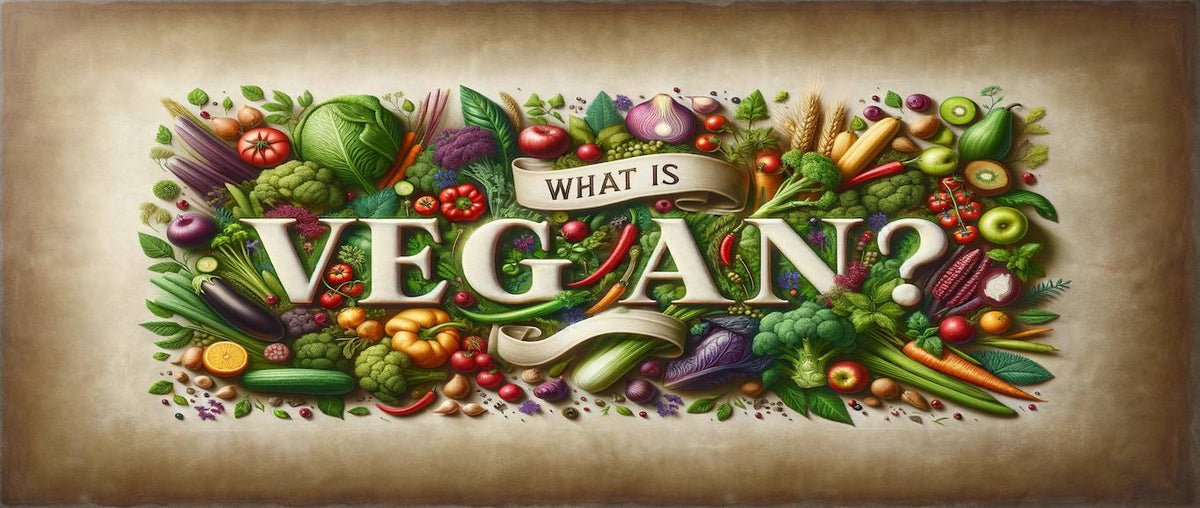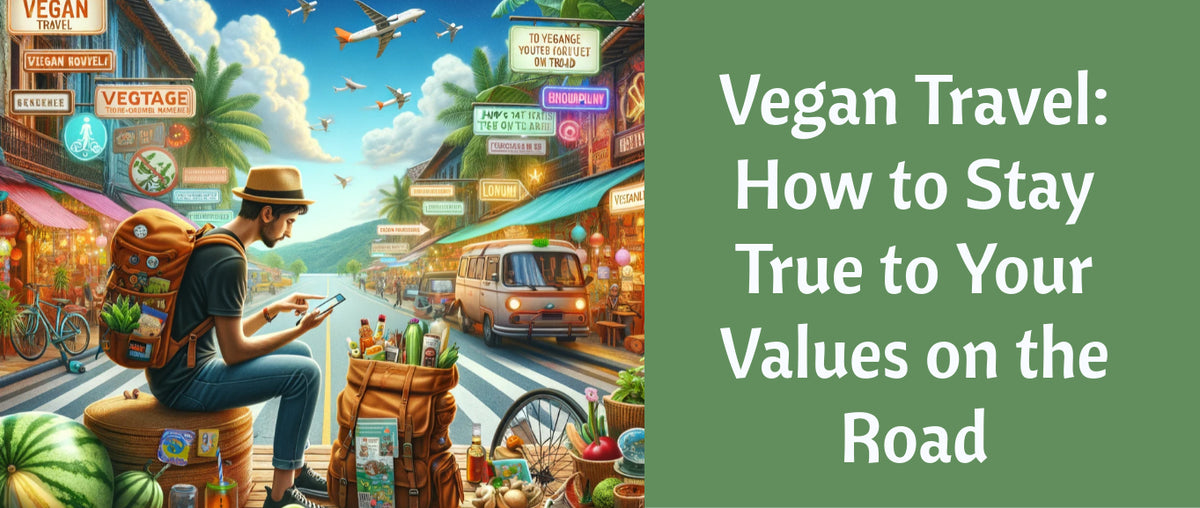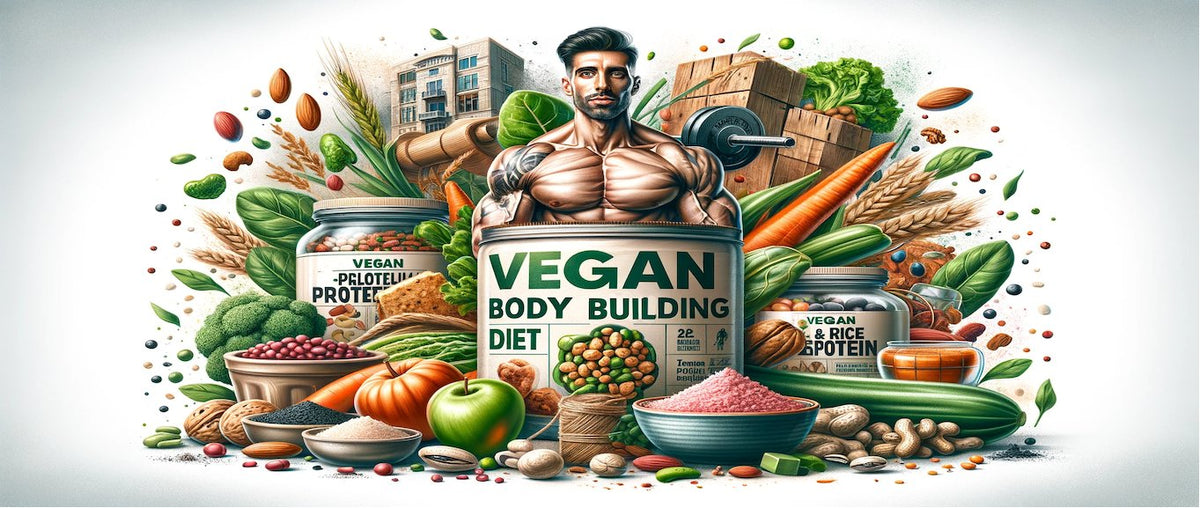What is Vegan?
What is Vegan? This question not only inquires about a diet devoid of animal products but also about a broader ethical and philosophical lifestyle that has evolved significantly over time. Veganism, often viewed as a modern phenomenon, has deep historical roots that span across cultures and millennia. From the ancient tables of India and the Mediterranean, where plant-based Vegan Bodybuilding Diet were embraced for myriad reasons, to the structured vegan movement initiated in the 20th century, this exploration uncovers the rich and complex history of veganism.
The term vegan was officially coined in 1944 by Donald Watson, yet the principles of a plant-based lifestyle have been in practice long before this designation. This blog post will navigate through the milestones of veganism, from its early adoption in ancient civilizations to its status today as a globally recognized lifestyle. We’ll delve into how historical practices have shaped modern veganism and how the movement has expanded far beyond dietary choices to encompass a comprehensive ethical philosophy. Join us as we trace the fascinating evolution of veganism, uncovering its impact and significance throughout history.
Historical Perspective
The journey of Veganism is a fascinating tale of evolution and passion. It traces back to ancient Indian and Mediterranean societies where people followed plant-based diets due to ethical, health, and spiritual beliefs. However, the term vegan was coined much later, in 1944, by Donald Watson, marking a pivotal moment in the vegan movement.
- Ancient Roots: Historical texts and practices in regions like India and Greece suggest the presence of vegetarian and plant based foods in early civilizations.
- 20th Century Veganism: The official foundation of veganism as a distinct lifestyle began with the formation of The Vegan Society in the UK.
- Evolution Over Decades: Post World War II, veganism grew from a small movement to a globally recognized lifestyle, primarily driven by ethical concerns about animal welfare, environmental issues, and health benefits of a cholesterol free foods diet.
This journey from ancient practices to a modern movement sets the stage for understanding the depth and breadth of veganism today.
History and Evolution of the Vegan Movement
The evolution of the vegan movement is a testament to changing societal norms and increased awareness about animal rights, health, and the environment. From a few individuals to millions today, the vegan movement has become a powerful force for change.
- Post-War Developments: The later part of the 20th century saw a surge in animal welfare activism, influencing a significant portion of the population towards veganism.
- 21st Century Veganism: Today, with the advent of the internet and social media, information about the benefits and practicability of veganism is more accessible than ever.
- Vegan Products: The market has responded with a range of Vegan products including vegan cheese, vegan butter , and vegan mayo, making the lifestyle more convenient and enjoyable.

Defining Veganism
Veganism vs. Vegetarianism
Understanding veganism begins with distinguishing it from vegetarianism. While both avoid meat, veganism adopts a broader exclusion of all animal products.
- Vegetarianism: Typically involves abstaining from meat, fish, and poultry.
- Veganism: Goes further to exclude all forms of animal exploitation and cruelty, including dairy, eggs, and even honey.
- Lifestyle Choice: Veganism often extends beyond diet to avoid animal-derived materials in clothing, cosmetics, and more.
The Vegan Society's Definition
The Vegan Society defines veganism as a way of living which seeks to exclude, as far as is possible and practicable, all forms of exploitation of, and cruelty to, animals for food, clothing or any other purpose. This encompasses:
- Dietary Choices: A diet free of all animal products, focusing on plant based foods and fat-free butter alternatives.
- Ethical Considerations: A commitment to prevent animal exploitation in all forms.
PETA's Perspective on Veganism
PETA (People for the Ethical Treatment of Animals), one of the most vocal animal rights organizations, emphasizes veganism as a key component to ending animal cruelty and environmental degradation.
- Ethical Stance: PETA advocates for veganism as an ethical responsibility towards animals and the planet.
- Health and Environment: They also highlight the health benefits of a vegan diet and its lower environmental impact compared to traditional diets.
Why Do People Go Vegan?
Ethical, Health, and Environmental Reasons
The motivations for adopting a vegan lifestyle are as diverse as the individuals who choose it. Primarily, these motivations can be categorized into three core areas:
- Ethical Concerns: Many people go vegan out of compassion for animals, opposing the idea of using them for food or any other purpose.
- Health Benefits: A growing body of research suggests that a plant-based diet can lead to lower risks of heart diseases, obesity, diabetes, and certain cancers. Vegan food products, particularly those like vegan cheese and cashew butter, provide nutritious alternatives to animal-based foods.
- Environmental Impact: Veganism is also seen as a way to reduce one's carbon footprint. Animal agriculture is a significant contributor to greenhouse gas emissions, deforestation, and water scarcity.
Personal Stories and Testimonies
Personal journeys to veganism often provide the most compelling insights. From celebrities to everyday individuals, the shift to a vegan lifestyle is frequently marked by profound personal growth and discovery.
- Health Transformations: Stories of improved health and vitality are common among new vegans.
- Ethical Awakenings: Many vegans cite documentaries or books that opened their eyes to the realities of animal agriculture.
- Environmental Advocacy: Some choose veganism to align their lifestyle with their environmental values.
What Do Vegans Eat?
Detailed List of Foods Included in a Vegan Diet
Contrary to common misconceptions, the vegan diet is diverse and rich in nutrients. It includes:
- Fruits and Vegetables: A staple in any diet, they form the foundation of vegan nutrition.
- Legumes: Beans, lentils, and chickpeas are excellent protein sources.
- Nuts and Seeds: Almonds, cashews, flaxseeds, and Cashew Butter are not only delicious but also packed with nutrients.
- Whole Grains: Quinoa, barley, and whole wheat products provide essential carbohydrates and fibers.
- Plant-Based Milks and Butters: Options like almond milk, soy-based vegan cheese, and vegan butter are popular dairy alternatives.
Common Substitutes for Animal Products
Vegans have found creative and delicious ways to substitute animal products:
- Meat Substitutes: Products like tofu, tempeh, and seitan mimic the texture and taste of meat.
- Dairy Alternatives: Plant-based cheese, vegan butter, and vegan mayo have made it easier to transition to a vegan diet.
- Egg Replacements: Flaxseeds and chia seeds can replicate the binding properties of eggs in cooking.

Increasing Interest in Veganism
Statistics and Trends Showing the Rise of Veganism
The global interest in veganism has been soaring, as evidenced by various statistics:
- Growing Market: The market for vegan products like plant-based cheese and vegan butter is expanding rapidly, with significant year-on-year growth.
- Social Media Trends: Hashtags like #Vegan and #PlantBased have millions of posts on social media platforms, indicating a growing community.
- Surveys and Studies: Recent studies show an increasing percentage of the population identifying as vegan or vegetarian.
Reasons Behind Its Growing Popularity
Several factors contribute to the rising popularity of veganism:
- Health Awareness: Growing awareness about the health benefits of cholesterol-free foods and plant-based diets.
- Environmental Concerns: Recognition of the impact of animal agriculture on climate change.
- Animal Welfare: Increasing exposure to the ethical issues surrounding animal farming.
What Is a Vegan Diet?
Detailed Breakdown of a Typical Vegan Diet
A typical vegan diet is diverse and nutritionally balanced, including:
- Plant-Based Proteins: Legumes, tofu, tempeh, and seitan.
- Whole Grains: Quinoa, brown rice, and whole wheat bread.
- Healthy Fats: Avocados, nuts, seeds, and cashew butter.
- Dairy Alternatives: Plant-based cheese, vegan mayo, and nut milks.
Discussion of Dietary Variety and Balance
Achieving a balanced vegan diet involves:
- Variety: Incorporating a wide range of fruits, vegetables, grains, and protein sources.
- Supplementation: Considering supplements for nutrients like B12, typically found in animal products.
- Culinary Creativity: Exploring diverse cuisines and recipes that make vegan eating enjoyable and sustainable.
Animal Products and Alternatives
Explanation of What Constitutes Animal Products
Animal products are derived from animals and include a variety of commonly consumed items:
- Meat and Poultry: From cows, pigs, chickens, and other animals.
- Dairy Products: Milk, cheese, yogurt, and butter derived from animals.
- Eggs: Produced by birds, primarily chickens.
- By-Products: Gelatin, honey, and other less obvious products derived from animals.
Vegan Alternatives for Common Animal-Based Foods
The vegan market has innovated a plethora of alternatives for almost every animal based food:
- Meat Substitutes: Plant based alternatives like soy or pea protein-based products.
- Dairy-Free Options: Vegan cheese, plant-based milks, and vegan butter made from nuts, soy, oats, and other plant sources.
- Egg Replacements: Options like aquafaba, banana, and commercially available egg substitutes.
Vegan Lifestyle
Beyond Diet: Lifestyle Changes
Veganism extends beyond diet, encompassing a philosophy that avoids exploiting animals for any purpose:
- Clothing and Accessories: Choosing materials that are not animal-derived like leather, wool, or silk.
- Beauty Products: Opting for cosmetics and toiletries that are cruelty-free and do not contain animal-derived ingredients.
- Everyday Choices: From household products to entertainment, making choices that do not contribute to animal cruelty.
Ethical Considerations in Fashion, Beauty, and Everyday Products
Being vegan involves making conscious choices in various aspects of life:
- Fashion: Seeking brands that use ethical and sustainable plant-based materials.
- Beauty Products: Using products that are labeled as vegan and cruelty-free.
- Home and Lifestyle: Choosing furniture, cleaning products, and other household items that align with vegan principles.
Veganism and Environmental Impact
Veganism is also a response to environmental concerns, aiming to reduce the ecological footprint:
- Reduced Carbon Emissions: Animal agriculture is a major contributor to greenhouse gases.
- Conservation of Water and Land: Plant-based diets require significantly less water and land than animal-based diets.
- Biodiversity: Avoiding animal products can lead to less habitat destruction and better conservation of wildlife.
Also Read
Health Impacts of Veganism
Scientific Perspective on Vegan Health Benefits
Adopting a vegan diet has been associated with numerous health benefits:
- Reduced Risk of Chronic Diseases: Studies show that vegans have a lower risk of heart disease, hypertension, type 2 diabetes, and certain types of cancer.
- Weight Management: Vegan diets, which are typically rich in fiber and low in saturated fats, can aid in maintaining a healthy weight.
- Improved Digestion: The high fiber content in plant-based foods like fruits, vegetables, and whole grains can lead to better gut health.
Addressing Common Health Concerns and Myths
There are several misconceptions about the vegan diet that need clarification:
- Protein: Contrary to popular belief, getting enough protein on a vegan diet is entirely feasible with sources like legumes, tofu, and quinoa.
- Calcium and Vitamin D: Leafy greens, fortified plant-based products, and supplements can provide these essential nutrients.
- Iron and B12: Vegans should be mindful of these nutrients, with iron available in lentils and spinach, and B12 obtainable through fortified foods and supplements.
Veganism Around the World
Global Spread and Cultural Adaptations of Veganism
Veganism is not just a Western phenomenon but a global movement:
- Diverse Cultures Embracing Veganism: Countries around the world, each with their own unique cuisines, are adapting traditional dishes into vegan-friendly versions.
- International Vegan Festivals: These events celebrate veganism and bring together people from different backgrounds to share knowledge and food experiences.
Prominent Vegan Communities and Events
The vegan community is vibrant and growing, with several notable events:
- Veganuary: An annual event where people are encouraged to try veganism for the month of January.
- World Vegan Day: Celebrated on November 1st, it's a day to highlight the benefits of veganism for humans, animals, and the natural environment.
- Online Forums and Social Media: These platforms play a significant role in bringing together vegans from all over the world, fostering a sense of community and shared purpose.

Transitioning to Veganism
Tips for Beginners
Transitioning to a vegan lifestyle can be a rewarding journey, but it requires some preparation and learning:
- Start Slowly: Begin by incorporating more plant-based foods into your diet before completely eliminating animal products.
- Learn to Read Labels: Understand how to identify non-vegan ingredients in food products.
- Experiment with Recipes: Try different vegan recipes to discover your favorite dishes and substitutes like vegan cheese or cashew butter.
Resources for Planning a Vegan Diet
There are numerous resources available for those new to veganism:
- Cookbooks and Blogs: Look for vegan cookbooks and online blogs for meal ideas and cooking tips.
- Nutrition Guides: Consult nutrition guides to ensure you're getting all the necessary nutrients.
- Community Support: Join vegan groups or forums to share experiences and get advice.
Vegan Recipes and Food Alternatives
Popular Vegan Recipes
Vegan cuisine is diverse and flavorful, with many delicious recipes:
- Main Dishes: Dishes like vegan lasagna, tofu stir-fry, and quinoa salad.
- Desserts: Vegan desserts such as dairy-free ice cream, fruit sorbets, and chocolate avocado mousse.
- Snacks: Healthy snacks like roasted chickpeas, vegetable chips, and hummus.
Dairy and Meat Alternatives
The variety of dairy and meat alternatives available makes vegan cooking easier:
- Meat Substitutes: Products like Beyond Meat and seitan that mimic the taste and texture of meat.
- Dairy-Free Products: A wide range of alternatives including vegan butter, plant-based cheese, and almond milk.
- Egg Alternatives: Options for baking and cooking such as flax eggs and commercial egg replacers.
Conclusion
Recap of Key Points
- Definition and Roots of Veganism: A lifestyle choice that excludes all forms of animal exploitation and cruelty, rooted in a rich history and evolving over decades.
- Diet and Lifestyle: Involves a plant-based diet, free from animal products, and extends to clothing, beauty products, and more, emphasizing cholesterol free foods and plant-based products.
- Health and Environmental Benefits: Offers numerous health benefits including reduced risk of chronic diseases, and contributes to environmental sustainability.
Final Thoughts on Embracing Veganism
Embracing veganism is not just a dietary change but a lifestyle transformation. It's about making conscious choices that align with ethical, health, and environmental values. With the availability of vegan food products, like vegan cheese and vegan butter, and a supportive community, transitioning to a vegan lifestyle is more accessible than ever.
Veganism is a journey of discovery and growth, offering a compassionate way of living that benefits not only individual health but also the wellbeing of animals and the planet.
If you are a vegan, looking to dine something vegan in your city, check out our list of vegan restaurants in India.










